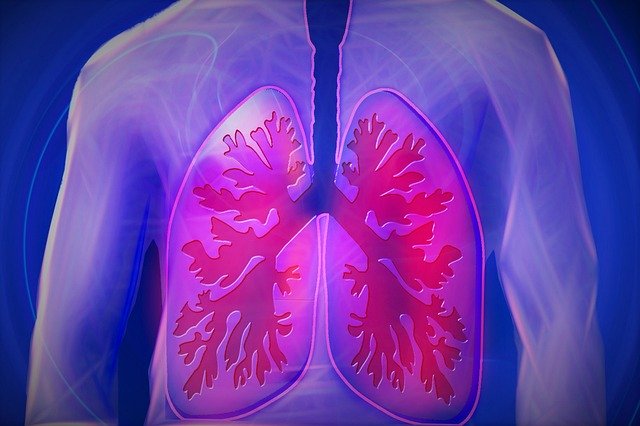Following rising cases of e-cigarette or vaping lung illness (EVALI) in the United States, experts have developed a guide for diagnosing and treating this condition.
E-cigarettes allow users to aerosolize (vape) liquid, which contains nicotine or other substances. Since their introduction in 2000, the worldwide usage of these devices has surged. Many e-cigarette formulations are flavored and marketed to appeal to young adults. Younger users may buy cheap products online or may experiment and modify the product being vaped. Some users have been adapting cartridges to vape tetrahydrocannabinol oil (THC), the psychoactive component of marijuana. Changes to the vape liquid or e-cigarette devices can substantially change the chemicals created in the aerosol and delivered to the lungs.
Recently in the U.S., there has been a rising number of reports of serious lung injury linked to vaping. Since June 2019, over 2000 cases of e-cigarette, or vaping, associated lung injury (EVALI) have been reported from 49 states. This has caused concern amongst U.S. public health and respiratory physicians. Based on a series of cases seen at their medical center, an expert team at the University of Rochester, New York, developed an algorithm guide to help physicians to diagnose, treat, and report vaping lung illness cases. They recently published their findings in Lancet Respiratory Medicine.
Cases of vaping lung illness are rising in the U.S.
Since spring 2019, healthcare professionals across the U.S. have documented more than 2,000 cases of acute lung injury related to vaping and 39 deaths. Patients’ symptoms ranged from mild breathlessness and cough to respiratory failure requiring admission to intensive care and mechanical ventilation. Patients also have gastrointestinal symptoms, which sometimes appear before respiratory symptoms. On investigation, patients have very low blood oxygen levels, and chest X-rays show signs of lung damage. Many patients have had devastating lung injury requiring long hospitalizations and slow recovery. The causes of vaping lung injury are still unclear.
At the University of Rochester Medical Center, 12 cases of EVALI were diagnosed between June and September 2019. In addition to respiratory symptoms, many patients experienced gastrointestinal symptoms including nausea, vomiting, diarrhea, and abdominal pain. The majority of patients had used of THC-containing liquids, although some had only used nicotine products. All patients recovered following cessation of vaping, supportive care, and steroid therapy and remained symptom-free at follow-up.
Based on their experience with these cases, the University of Rochester team developed a diagnosis and treatment algorithm guide for information-gathering, evaluation, and treatment of patients with suspected vaping lung illness. This expands the earlier Centers for Disease Control and Prevention (CDC) guidelines. The team hopes that the algorithm tool will help physicians to identify patients with vaping lung illness and minimize the risk of missed diagnoses, especially during the upcoming flu season, when cases may be mistaken for a respiratory infection.
Investigation into cause of vaping lung illness ongoing
“This illness has been vexing for physicians across the country and we continue to see people suffering from the dangerous effects of vaping” said Dr. Daniel Croft, from the University of Rochester, a lead author of the study. The causes of vaping lung injury are still unclear, though many patients have used products containing THC. Toxicology experts are analyzing vaping cartridge samples to try to identify the causes of EVALI.
When advising patients and the public, the authors recommend that in general the use of vaping products and e-cigarettes should be stopped while the investigation into EVALI is ongoing. People using vaping to help quit cigarettes should wean off the device as soon as possible and, if necessary, move to FDA-approved cessation approaches, such as nicotine patches. New York Health Commissioner Dr. Howard Zucker said that the Department of Health is working with health providers across the state to investigate the outbreak. “We continue to urge New Yorkers to stop using vape products until the investigation is complete,” commented Dr. Zucker.
Written by Julie McShane, MA MB BS
References:
- Kalininskiy A, Bach CT, Nacca NE, et al. E-cigarette, or vaping, product use associated lung injury (EVALI): case series and diagnostic approach. Lancet Respir Med 2019. Published online, Nov 8 2019.
- University of Rochester Medical Center, Press Release 8 Nov 2019. “Physicians create guide for identifying, treating vaping lung illness.” https://www.eurekalert.org/pub_releases/2019-11/uorm-pcg110819.php
Image by kalhh from Pixabay



